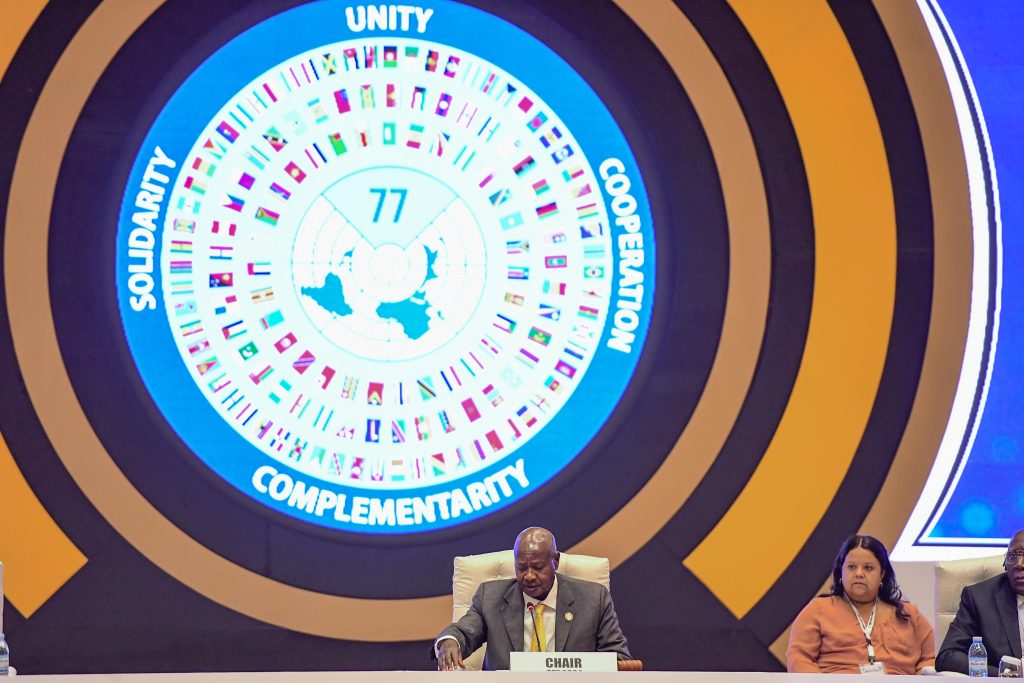Climate Change Crisis: Is Government really serious?

Mr. Eron Kiiza
On June 13, Hon. Matia Kasaija, the Minister of Finance, Planning and Economic Development, delivered the budget speech for the financial year 2024/25 under the theme; ‘Full Monetisation of Uganda’s Economy through Commercial Agriculture, Industrialisation, Expanding and Broadening Services, Digital Transformation and Market Access.’
It is worth noting that this year’s budget is the fifth and the last one in regard to the implementation of the Third National Development Plan 2020/2021 – 2024/2025 (NDPIII).
According to Hon. Kasaija, the Government hopes that the same budget would set the foundation for expanding Uganda’s GDP tenfold - from about USD50 billion in FY2022/23 to USD 500 billion by 2040. A great dream indeed, one could say.
- Mr. Kasaija however admitted that there are many risks to Uganda’s growth prospects that require urgent mitigation, most notable of which is climate change. He confirmed that climate change is one of the biggest threats to the country’s growth and development agenda, as it has diminished agricultural production and imperiled infrastructure development.
Furthermore, he stated that the Government is working hard and fast to minimize these risks through implementing strict climate change adaptation measures, exploring cheaper climate finance options, and getting frugal, which we certainly don’t believe, given that in our view the Government is too big, too corrupt and too extravagant to confront a crisis like the climate catastrophe.
Some of the climate change mitigation measures mentioned included the intention of the Government to restore 42,450 hectares of degraded wetlands along the Awoja, Kandekye-Ruhorobero, Nchwera, Chambura, Kiruruma, Naigombwa, Kibimba, Tochi, Aswa, Sezibwa, Mayanja, Muzizi, Mpanga and Lumbuye water systems; the allocation of UGX516 billion in the financial year 2024/25 budget for climate change mitigation activities, natural resources protection and preservation, environmental protection and water resources management.
- The Government further promised to enhance ‘green financing’ to ensure adequate climate adaptation and related mitigation. This will be done by further capitalising Uganda Development Bank (UDB) with an additional UGX55 billion.
Of course, these promises might tempt one to think of a government that is committed to combating climate change, environmental protection and preservation until we ‘stumble’ upon its intention to provide a whopping UGX920 billion for the oil and gas (climate wrecking fossil fuels) in FY2024/25.
This, compared to the UGX516 billion (reduced from UGX2.2 trillion in FY2023/2024) allocation to climate change, environment, natural resources and water, leaves one wondering about the seriousness of our government towards the battle against climate change and its effects.
The problem here is that, besides underfunding, the efforts towards fighting climate change and its effects are negatived by the heavy funding being allocated to the oil and gas sector, the undisputed global leader in pollution and environmental destruction, while the natural resources sector––on which the economy of Uganda, our own, and our children’s future depend, gets reduced funding!
Flashback, in the previous budget for the FY 2023/2024, the government had committed and allocated UGX2.2 trillion for food security, irrigation, climate change mitigation, value chain development, agricultural research and disease control, among others.
- Additionally, it had promised development of small scale solar-powered irrigation schemes to address climate change and ensure food security. Furthermore, it had promised to prioritise environmental conservation, restoration and protection of degraded water catchment areas and forest cover.
- It is yet to present a report on how it performed on those commitments. Evidently, the new Financial Year’s budget delivers mere mosquito kicks against the climate crisis. It kicks those concerned about the environment in the teeth since it invests more money in the causes of the climate crisis than the solutions and mitigation measures.
For example, as explained above, the Government has slashed the climate budget by more than half from UGX2.2 trillion in last year’s budget to just UGX516 billion in this Financial Year (2024/2025).
Nature demands that we must do more for the environment. Unfortunately, the Government is not giving a good example.
**The writer is the Executive Director of Environment Shield, a civic organization specializing in climate, natural resources and environmental justice.
























